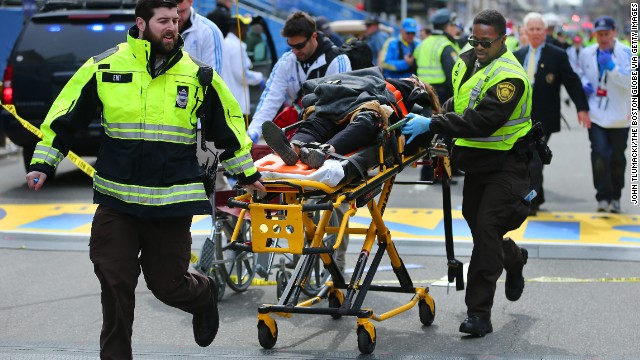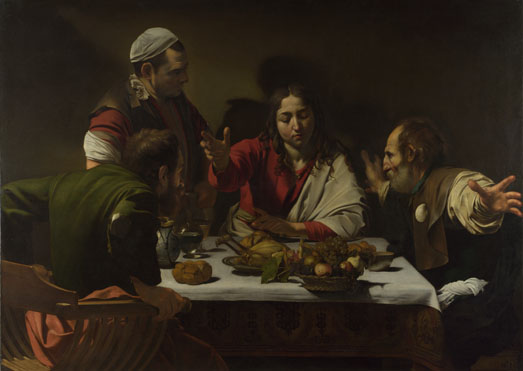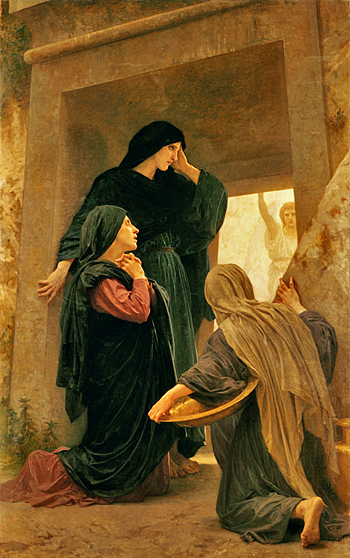Easter 5-c April
28, 2013
Acts 11:1-18
Psalm 148
Revelation 21:1-6
John 13:31-35
Years ago, I joined a tennis club. I did not then, and do not
now, know how to play tennis, and I’m not quite sure why I joined. No one at
the club was mean to me, but no one was really interested in me, either. I
suppose we’ve all tried out membership in all sorts of clubs, or we’ve been in
clubs when we knew that some of the people who walked through the doors just
weren’t supposed to be there. What do clubs do when someone doesn’t have the
right coat, or doesn’t know how to use the right fork, or, in the case of the
apostles, doesn’t eat the right meat?
From the point of view of the rest of the apostles, Peter
should not be eating with THOSE kinds of people. These apostles are followers
of Jesus, yes, but they do not see why they should break with their Jewish
past. They know well that Jesus said, “I give you a new commandment, that you
love one another.” But perhaps they hear more continuity than drastic change in
what Jesus says. This commandment comes from God, like Jesus comes from God –
and not some new, innovative God. John – and Jesus, and Peter, and all the rest
of the apostles are talking about the same God they have known from childhood –
and the same God their parents, and their parents’ parents, and their parents’
parents before them knew, the God who taught them about love, and who expected
them to love each other. This is the same God who gave them rules to live by –
rules about food – but also rules about caring for strangers, about mercy and
forgiveness, about justice and compassion. God has always been about pushing
the boundaries of the community out, out out, into the whole known world. God
pushed and pulled us together as a people so we could be lights of God’s
goodness for the whole world. When God saw the people of Israel getting too
inward, too narrow, God pushed them, gave them a new challenge, something new
that forced them to re-think what it meant to be the people – not only of
Israel, but of God.
One of the ways God gets to people in the Bible is through
dreams and visions, and God caused Peter to have quite a vision. In that
vision, God caused a complete up-ending of everything Peter thought was “the
way we do things in our club”, the place where the rules said you could only
eat certain kinds of meat. Make no mistake: God had handed down those rules
about what to eat, and Peter knew those rules. “We” ate a certain way, and
“they” ate a different way. But now Peter heard God say, “Do not make a
distinction between them and us,” and Peter was shocked. He had to hear this
three times before he realized that it meant he had to go into that house and
eat that food with those people.
And then the miracle happened: “they” became “us.” No doubt
Peter was just as odd to them as they were to him. They, too, took a risk with
their hospitality, but look what happened: A whole bunch more people became
Christians, got the light, learned the story, and started to believe that they
were in “the club”, too. This is how Peter explained what happened to his
equally shocked co-apostles: “If then God gave them the same gift that he gave
us when we believed in the Lord Jesus Christ, who was I that I could hinder
God?"
Indeed: Who was I that I could hinder God?
Note that the word used there is not “should” but “could.”
It’s not, who am I, that I should hinder God. It’s, who am I that I COULD
hinder God? God’s spirit pushes and pulls us, loving us along the way, always
insisting that we can do more, love more, open more, be more. We can invite
oddballs like Peter into our house, invite him to sit at our table, and
amazingly, there will still be enough to go around – amazingly, some amazing
things can happen. The world can look like a new place. A new heaven. A new
earth. A new church.
You might guess where I’m going with this. I had the
strangest vision when I was praying over these texts, when I was trying to
figure out what they might mean to us, here, St. David’s, DeWitt, today. I saw
a medical clinic in South Sudan, and Bol Garang meeting his mother at Kennedy
Airport. I saw meal after meal served at the Samaritan Center. I saw day old
baked goods loaded into a van and taken to Temple Concord. I saw total
strangers, grieving and sad, being welcomed here and given food and drink and
comfort.
And I saw people who had not paid even their $25 Patrons
membership fee drinking champagne at the opening of the Celebration of the
Arts. I saw all of us – or a lot of us, any of us who want to come – whether
we’ve paid our $25 or not -- wearing our name tags and welcoming people, and
shaking their hands, and giving them a drink -- all those people, who came
through our doors, thinking they were here just to see some art and listen to
some music – people who aren’t Christians, who don’t want to be Christians, who
go to other churches, people who eat all kinds of meat or no meat at all –
people who came here thinking this was just some ordinary place – some ordinary
church -- but what they saw, what they
really saw, was a new heaven, and a new earth.


.jpg)













